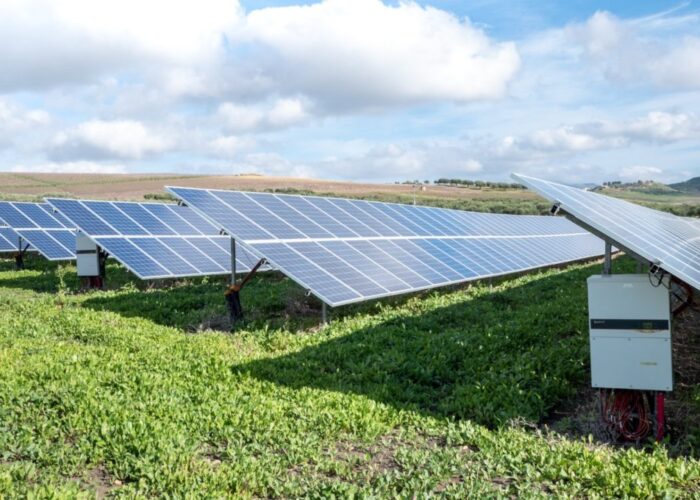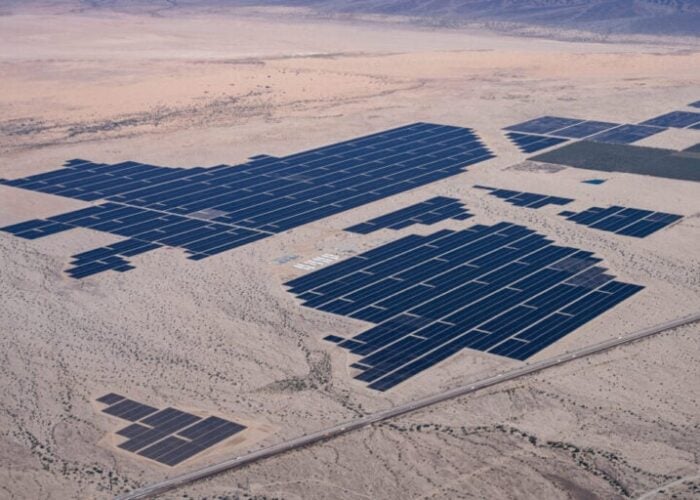Allora Minerals has been busy, acquiring the remaining assets of OptiSolar, receiving preliminary approval to garner millions of Euro in grants for German projects, and getting shareholder approval to change its name to that of another company whose assets it's buying, EPOD Solar (ESI). The OptiSolar deal will bring the once-promising thin-film PV company's intellectual property and its manufacturing and R&D facilities in Northern California into ESI's portfolio.
Under the terms of the letter of intent signed by OptiSolar and the rechristened ESI, the acquiring company plans to purchase OptiSolar assets for a value of $260 million in an all-stock transaction, priced at $21.66 per share, resulting in the issuance of 12 million shares of Allora/ESI common stock to OptiSolar shareholders.
Unlock unlimited access for 12 whole months of distinctive global analysis
Photovoltaics International is now included.
- Regular insight and analysis of the industry’s biggest developments
- In-depth interviews with the industry’s leading figures
- Unlimited digital access to the PV Tech Power journal catalogue
- Unlimited digital access to the Photovoltaics International journal catalogue
- Access to more than 1,000 technical papers
- Discounts on Solar Media’s portfolio of events, in-person and virtual
OptiSolar sold its project development assets to First Solar earlier this year, after the company was unable to finance its continued expansion and largely shut down its operations.
Under the terms of the agreement, British Columbia-based ESI gains OptiSolar's Hayward site, a 95,000 sq-ft R&D production-level facility that features a pair of single-junction, amorphous-silicon thin-film PV lines rated at 15MW each, a proprietary inverter lab, and other intellectual property.
Also included in the deal is OptiSolar's Sacramento manufacturing facility, a 1-million sq-ft factory prepared for up to 40 20MW tandem-junction a-Si lines (total of 800MW) or a similar amount of triple-junction lines, which would then be capable of expanding to 1GW, according to ESI. The facility also includes automated panel manufacturing technology.
ESI already has manufacturing facilities for a-Si thin-film panels for deployment in its solar parks built or under development in Europe and North America.
“This acquisition is a significant milestone for our business, said Mike Matvieshen, president/CEO of the vertically integrated PV firm. “We now have a manufacturing facility capable of scaling to 1GW in nameplate production capacity. We have increased our manufacturing capacity immediately from 5MW to 30MW. In the near term we plan to convert our single-junction lines to dual-junction lines, expanding capacity to 55MW.”
“OptiSolar had invested about $310 million into the R&D lab Hayward manufacturing facility and the Sacramento assets which we are purchasing,” added Matvieshen. “This is a tremendous value to our business and to our shareholders.”
“The acquisition of OptiSolar's intellectual property and its state-of-the-art production-size R&D facility gives us a real advantage because this allows all new developments in production improvement to be immediately implemented in the factory, and its inverter technology will accelerate our path to reducing the cost-per-installed-watt to under $1.35 fully installed. This, in turn, will drive higher profitability to our solar parks when selling electricity.”
The product qualification process at the facility has been completed, and at the start of production, the plant will employ approximately 168 workers, according to ESI.
ESI also plans to move along the $300 million loan guarantee application submitted by OptiSolar in February to the U.S. Department of Energy for the start of its Sacramento facility.
In another development, ESI's EEEG German unit has received preliminary approval from Thüringen Aufbaubank for €23.5 million in grants. The company plans to build a 30MW solar manufacturing facility in Thüringen and had applied for the grants based on the regional development programs defined by the European Commission.
“These nonrepayable grants represent a tremendous opportunity for our business and its shareholders,” noted Matvieshen. “EEEG has an established presence in Germany with five operating solar park projects producing about 1500 kWp of capacity and projects identified for potential development through acquisitions or greenfield developments which would consume the planned increase in manufacturing capacity.
“EEEG's 30MW manufacturing project in Germany is grant eligible and orders can be placed for equipment. The new manufacturing capacity will be able to produce solar modules at approximately $0.70 cents per watt peak,” he added.







